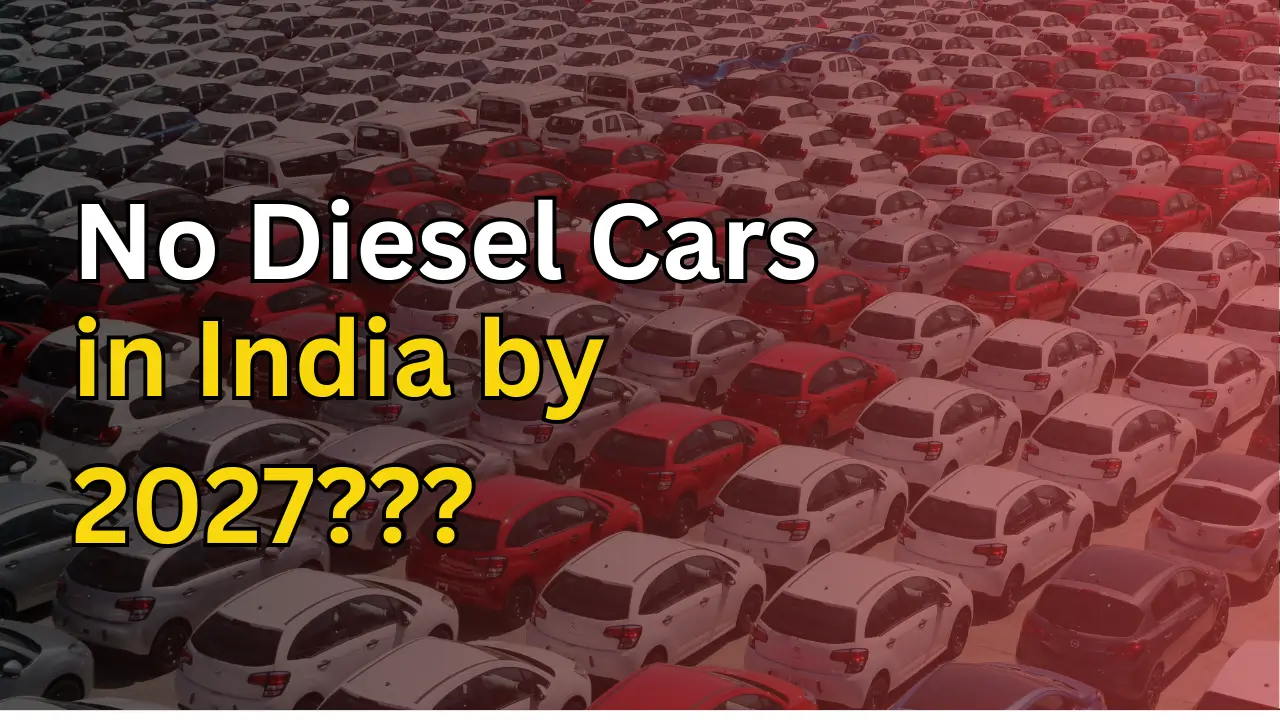The diesel car ban in India has become a significant topic of discussion as the country grapples with rising pollution levels and the need for cleaner transportation solutions. In recent years, the Indian government has taken steps to address air quality issues, particularly in major cities where pollution is at its worst.
With the introduction of stringent emission norms and recommendations from various committees, there is a growing possibility of a nationwide ban on diesel vehicles by 2027. This article will explore the implications of such a ban, its potential impact on the automotive industry, and what it means for consumers.
As urban areas continue to expand and vehicle ownership increases, the environmental consequences of diesel engines have come under scrutiny. Diesel vehicles are known for their higher emissions of nitrogen oxides (NOx) and particulate matter compared to petrol vehicles.
These pollutants contribute significantly to air quality deterioration, leading to health problems and environmental concerns. In response, the Indian government is considering a phased approach to banning diesel cars, particularly in cities with populations exceeding one million.
The proposed ban aims not only to reduce pollution but also to encourage the adoption of electric vehicles (EVs) and alternative fuel options. This shift aligns with global trends where many countries are moving towards cleaner transportation solutions. In this article, we will provide an in-depth analysis of the diesel car ban in India, including its rationale, expected timeline, challenges, and potential benefits.
Diesel Car Ban in India 2025
| Feature | Details |
| Proposed Ban Year | 2027 (under consideration) |
| Target Vehicles | Diesel cars older than 10 years |
| Cities Affected | Major cities with >1 million population |
| Emission Norms | Bharat Stage VI (BS-VI) |
| Environmental Impact | Reduction in NOx and PM emissions |
| Government Goals | Promote electric vehicles |
| Public Reaction | Mixed responses from consumers and manufacturers |
The table above summarizes key aspects of the proposed diesel car ban in India.
Key Reasons for the Diesel Car Ban
- Air Pollution: Diesel vehicles are major contributors to air pollution in urban areas. The high levels of NOx and particulate matter from diesel engines have led to severe health issues among residents.
- Health Concerns: Studies have linked air pollution from diesel vehicles to respiratory diseases, cardiovascular problems, and other health risks.
- Global Trends: Many countries are implementing similar bans on diesel vehicles as part of their commitment to reducing carbon emissions.
- Government Initiatives: The Indian government has set ambitious targets for reducing greenhouse gas emissions and promoting sustainable transportation.
Impact on the Automotive Industry
Changes in Vehicle Production
The potential ban on diesel cars will significantly impact vehicle production strategies among manufacturers:
- Shift to Petrol and Electric Vehicles: Automakers may increase production of petrol vehicles and electric models to meet consumer demand.
- Investment in EV Technology: Companies will likely invest more in electric vehicle technology and infrastructure to comply with future regulations.
Market Dynamics
The automotive market may undergo several changes as a result of the proposed ban:
- Increased Demand for CNG Vehicles: Compressed Natural Gas (CNG) vehicles may see a rise in popularity as an alternative fuel option.
- Decline in Diesel Vehicle Sales: As consumers anticipate the ban, sales of new diesel vehicles may decline.
Challenges for Manufacturers
Automakers will face several challenges as they adapt to changing regulations:
- Compliance Costs: Upgrading manufacturing processes to meet new emission standards can be costly.
- Consumer Education: Educating consumers about the benefits of alternative fuel options will be essential for a smooth transition.
Timeline for Implementation
While discussions about banning diesel cars are ongoing, a proposed timeline has emerged:
- 2025 – Initial Recommendations: The Energy Transition Advisory Committee is expected to finalize recommendations regarding the ban.
- 2026 – Consultation Phase: The government will consult with stakeholders, including manufacturers and environmental groups.
- 2027 – Potential Ban Implementation: If approved, the ban on diesel cars could take effect in major cities.
Phased Approach
The government may adopt a phased approach:
- Phase 1: Ban on diesel cars older than ten years in heavily polluted cities.
- Phase 2: Gradual reduction of new diesel vehicle registrations over time.
Public Reaction
The proposed diesel car ban has elicited mixed reactions from various stakeholders:
Support from Environmentalists
Many environmentalists support the ban due to its potential to improve air quality and public health:
- Cleaner Air: Reducing diesel vehicle emissions can lead to better air quality.
- Health Benefits: Fewer pollutants can result in lower rates of respiratory diseases.
Concerns from Consumers
Some consumers express concerns about the potential impact on their daily lives:
- Cost of Transition: Switching to electric or petrol vehicles may incur additional costs for consumers.
- Charging Infrastructure: The availability of charging stations for electric vehicles remains a concern.
Industry Response
Automakers have varied responses based on their business models:
- Adaptation Strategies: Many manufacturers are already investing in electric vehicle technology.
- Advocacy for Transition Periods: Some companies advocate for longer transition periods to allow consumers time to adapt.
Benefits of the Diesel Car Ban
The proposed ban on diesel cars could yield several benefits:
Improved Air Quality
Reducing emissions from diesel vehicles can lead to significant improvements in urban air quality:
- Lower Pollution Levels: A decrease in NOx and particulate matter can enhance public health outcomes.
- Healthier Communities: Cleaner air contributes to better overall health for city residents.
Promotion of Electric Vehicles
The ban could accelerate the adoption of electric vehicles:
- Incentives for EV Purchases: Government incentives may encourage consumers to choose electric options.
- Investment in Infrastructure: Increased demand for EVs will likely lead to improved charging infrastructure.
Economic Opportunities
Transitioning away from diesel can create new economic opportunities:
- Job Creation in EV Sector: Growth in electric vehicle manufacturing can lead to job creation.
- Innovation in Clean Technologies: The push towards cleaner transportation can spur innovation within the automotive industry.
Challenges Ahead
Despite its potential benefits, implementing a diesel car ban presents challenges that need careful consideration:
Infrastructure Development
To support increased electric vehicle adoption, significant infrastructure development is necessary:
- Charging Stations: A robust network of charging stations must be established across urban areas.
- Grid Capacity Upgrades: The electrical grid may require upgrades to handle increased demand from EVs.
Consumer Acceptance
Gaining consumer acceptance will be crucial for the success of this initiative:
- Education Campaigns: Informing consumers about the benefits of switching from diesel is essential.
- Financial Incentives: Providing financial incentives can help ease the transition for consumers.
Regulatory Framework
A clear regulatory framework is needed to guide this transition effectively:
- Emission Standards Enforcement: Strict enforcement of emission standards will be necessary.
- Monitoring Compliance: Continuous monitoring will ensure compliance with new regulations.
Conclusion
The proposed ban on diesel cars in India by 2027 represents a significant step towards cleaner transportation solutions. As air pollution continues to pose serious health risks, this initiative aims to improve air quality while promoting sustainable mobility options. While there are challenges ahead—including infrastructure development and consumer acceptance—the potential benefits are substantial.
With strong support from environmentalists and proactive measures from manufacturers, India can navigate this transition successfully. By investing in electric vehicle technology and creating robust infrastructure, the country can pave the way for a greener future. Ultimately, this move not only addresses immediate environmental concerns but also positions India as a leader in sustainable transportation solutions.
In summary, as discussions around the diesel car ban progress, it is essential for all stakeholders—government bodies, manufacturers, and consumers—to work together towards achieving cleaner air and healthier communities. The journey towards a more sustainable automotive landscape begins now.



